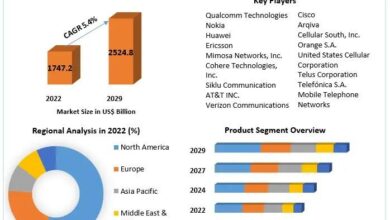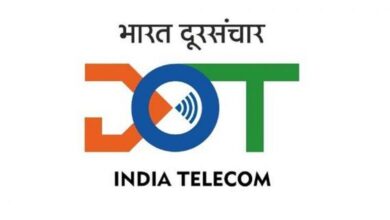Telecom firms overcharge Virginia government by $500,000 each month, CIO says

Every month, telecommunications companies overcharge public sector agencies across Virginia by at least $500,000, according to Robert Osmond, the state’s chief information officer.
But thanks to a brokering service offered by his office, the Virginia Information Technologies Agency, they won’t have to pay those extra charges. Osmond told StateScoop that the brokering service’s customers — some 800 public universities, K-12 school districts, utilities, local governments and county-affiliated rescue squads — don’t have to pay those charges because VITA disputes them on their behalf.
The service, which Osmond said he believed to be an unusual offering by a state government, allows customers to receive just one bill for all their telecommunications services, from pagers to satellite internet service. Osmond described the service as a “cost-neutral” way for the state government to save the rest of the state money and the hassle of double-checking its many bills.
“They can buy our product, we bundle it together, give them one bill and then we also do anti-fraud where we’re looking at mistakes in the billing,” Osmond said. “A frequent overage is that they double-bill you, and so we catch that, we reject it and dispute it.”
Osmond said the overcharges of roughly $500,000 each month are probably just half of the savings the state can realize. He said this summer Virginia will switch to a new system powered by artificial intelligence that he predicted will boost to $1 million the amount of discovered monthly overcharges and inefficiencies. And beyond finding double-charges, Osmond said, the new AI system will help the public sector figure out which services it’s paying for but not using.
“Earlier this year we identified several thousand lines that hadn’t made a phone call in six months,” Osmond said. “They were just there, that people were using just in case, and we just discontinued them. But if we hadn’t prompted it, nobody would have taken any action, so that saved a ton of money.”
Currently, VITA runs data analytics manually to find billing mistakes and unused services. But 18 months ago, VITA, the accounting firm KPMG and an AI firm called Claro, started developing a new AI system that Osmond said will make the service more accurate and highly automated. But despite the big cost savings, Osmond said, it wasn’t initially obvious the state would offer such a brokering and fraud-detection service, because “it’s a lot of work.”
“We’ve done a lot of soul searching, saying, is this the business we want to be in?” Osmond said. “Because most [states] provide contracts, but they don’t really provide a service behind it.”
Osmond said part of the challenge is in the size of the service catalog, which collects 5,700 services from across 30 service providers, from large companies like Comcast to smaller local outfits. In the end, he said, his agency committed to providing the service.
“We concluded if we don’t do it, nobody will and [the overcharges] will just become a cost of doing business,” Osmond said. “Sometimes you pay for accounts you don’t have, and people would just accept that. We thought that’s an opportunity for government to do a better job.”



